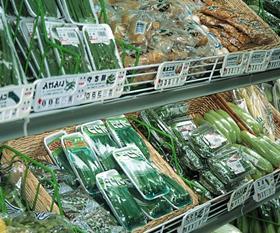
Food contamination could increase in areas surrounding Japan’s stricken Fukushima nuclear power plant, according to reports from the country.
Japan’s ministry of health, labour and welfare stated it has now discovered contamination in 99 products, including milk and vegetables, in Tokyo and five prefectures to its north and east.
“The number of radiation-affected foods will likely increase as each prefecture is testing its produce,”department official Taku Ohhara told Bloomberg.
Meanwhile, China has joined the growing list of countries that have banned the import of certain Japanese food products.
The Chinese ban covers dairy, vegetables, fruit and water-based products, from the Japanese prefectures of Fukushima, Tochigi, Gunma, Ibaraki and Chiba.
China’s general administration of quality supervision, inspection and quarantine said in the China Daily: “Japan's Fukushima nuclear plant leak accident has already resulted in serious pollution to local food and agricultural products.”
Singapore has now extended its ban to include produce from Tokyo and two other prefectures following the discovery of contamination in two samples. This comes on top of an earlier ban on imports from four prefectures in Kanto, the Agri-Food and Veterinary Authority of Singapore stated in a media release recently.
Meanwhile, in response to the bans Japanese delegates are expected to ask WTO member countries to abide by regulations laid out by the organisation that bar trade restrictions not based on scientific grounds, reported the Kyodo News Agency.
Japan has recently adopted rules prohibiting the distribution of food products with excessive readings of radioactive matter and stopped shipments of vegetables and milk from near the stricken nuclear plant, the agency reported.



